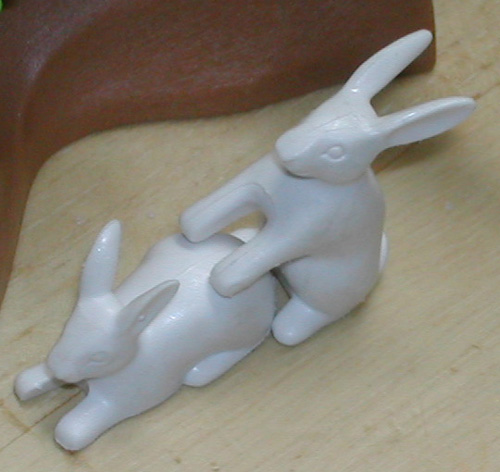While discussing poop with a bunch of life scientists — in particular, we were discussing its utility in a wide variety of research projects — one of the scientists at the table related a rousing cheer which I simply must share:
Category Archives: Biology
Ask a Pirate Blogger.
 Avast, ye bloglubbers!
Avast, ye bloglubbers!
We be starin’ down the crow’s nest at another International Talk Like a Pirate Day, a holiday marked in these seas by the seizin’ o’ this bucket by the Dread Pirate Free-Ride. Aye, it happened last year, and by the beak o’ the squid guardin’ Davy Jones’ locker*, it’s happened again.
What’s that ye be sayin’? Pirates didn’t really be sayin’ “Arrrr”? Shove some hardtack in that mouth or I be usin’ it to scrape the barnacles off this bucket!
Brief remarks on ‘physics first’ and high school science.
Chad and Rob have already noted this piece of news about soon-to-be-published research indicating that the order in which high school students are taught physics, chemistry, and biology makes very little difference to their performance in science classes at the college level, while a rigorous math curriculum in high school gives their college science performance a significant boost.
I have a few things to say about this.
OpenWetWare
Regular readers know I frequently suggest the community of science would be better off if its institutional contexts favored more collaboration and less competition. (I’m not the only one.) So I wanted to mention a project, OpenWetWare that’s trying to move biology in that direction.
Scientific plausibility of Never Let Me Go.
Since it has come up in the comments on my review of Kazuo Ishiguro’s novel Never Let Me Go, I’m going to go ahead and discuss some of the issues around cutting-edge biomedical technologies in the book that might, or might not, be plausible when pondered. (As Bill points out, the scientific details in the novel itself are pretty minimal — the focus is squarely on the interactions between characters — so plausibility is only an issue if you’re not good at suspending disbelief.)
WARNING: This post will be packed with spoilers!
Unless you’ve already read the book, or you have sworn a blood-oath never to read the book, you really should skip this post.
Playmobil imitates life.

Quoth the younger Free-Ride offspring, “The rabbits are mating because they want to have bunnies.”
While I would not presume to know the volitional states of rabbits, whether real or plastic, I agree with the child’s assessment of the activity in which the rabbits are engaged.
DVD review: Ethics in Biomedical Research
 On this blog I occasionally note a major motion picture that is (tangentially) related to ethics in science, not to mention seeking your advice on my movie-viewing decisions (the votes are running 2 to 1 in favor of my watching Flash Gordon; if I do, I may have to live-blog it).
On this blog I occasionally note a major motion picture that is (tangentially) related to ethics in science, not to mention seeking your advice on my movie-viewing decisions (the votes are running 2 to 1 in favor of my watching Flash Gordon; if I do, I may have to live-blog it).
Today, I’m going to give you an actual review* of a DVD whose subject is ethical scientific research.
Because you ought to have options when planning your weekend!
Look at those leatherbacks go!
Friend of the blog LO alerted me to The Great Turtle Race, wherein a passel of leatherback sea turtles “race” from Playa Grande in Costa Rica to the Galapagos Islands. The linked website it tracking the turtles via satellite, so you can watch their progress and root for your favorite. (I’m pulling for Stephanie Colburtle, “an intensely patriotic turtle who can fly through the water like an eagle”.) There is also information there about leatherback sea turtle populations and ways you can help protect them.
Students learn less from ‘cookbooks’ than from working out their own approach.
Score another point for my mother.
My mother is a really good cook. She is also an unrepentant violator of recipes. My earliest cookbook related memory involves noticing that, while Mom had a recipe in front of her, she was flagrantly measuring different amounts of ingredients than those called for, and combining them in a way that clearly contravened the method described on the page.
It turns out that this manifestation of her issues with authority may also explain why she has such a good understanding of what she’s doing in the kitchen.
At least, that’s a conclusion I’m inclined to draw from research done by Ohio State University professor Steve Rissing on two different approaches to an enzyme laboratory experiment in an introductory biology course:
Biological rhythms: the post-Thanksgiving head-cold.
I have a question for the scientifically informed hive-mind:
Why is it that no matter what I do, I end up with a head-cold by a few days after Thanksgiving?
